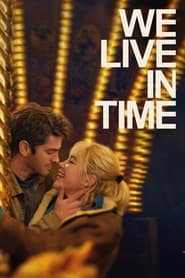This hasn't been released yet in the UK, but I managed to catch it in the US. All of the low-key, whimsical Britishisms seem to evade viewers' and critics' attentions, and this is not limited to the cultural position, so to speak, of the Jaffa cake, the box of Celebrations and the Ginsters pasty. Equally unexplored by American critics are the class overtones of the story: Tobias is almost certainly marrying 'up', whilst Almut appears to be more than financially comfortable — indeed, the couple appear to casually own a fairly large terrace in Herne Hill at one point, and can start one of the riskiest businesses possible (an experimental restaurant) without considering the financial burden. I suspect that these aspects of the story will strike UK viewers like Marmite. That is to say, they'll either be taken in by the cottagecore feel of many scenes, or they'll put off by the forced whimsy of, say, including a naff garage with quaint 'working-class' staff. Others may be repulsed by the film concerning itself with the problems of such a casually affluent couple, and will not recognise Tobias and Almut's interaction with the NHS. These issues are likely to be expressed in the form of griping about the film's fractured chronology. Whilst definitely a weak point of the film, I hazard that this will become a lightning rod for other, more inchoate criticisms — including that the screenplay often evinces a lack of confidence so that any buildup of tension has to be quickly punctured by some lighthearted and/or quaint joke.
When We Live in Time isn’t putting hats on hats, it crafts organic, often touching depictions of romantic love across its scenes. But between the film’s needlessly complicated structure and the filmmakers’ affinity for the mawkish elsewhere, the impact of the more intimate moments that it gets right is regrettably muted.
— Derek Smith (Slant Magazine)
Beyond [a] few rudimentary bits of image-rhyming (cutting from a diner meal in one timeline to a diner meal in another; a bedroom to a bedroom; and so on), the temporal games don’t yield much insight or even showy emotional fireworks. […] We Live in Time is as impenetrable as an art film, in that it’s never really clear why we’re meant to experience this particular story this particular way – or even, really, what this particular story is.
— Jesse Hassenger (Paste Magazine)

